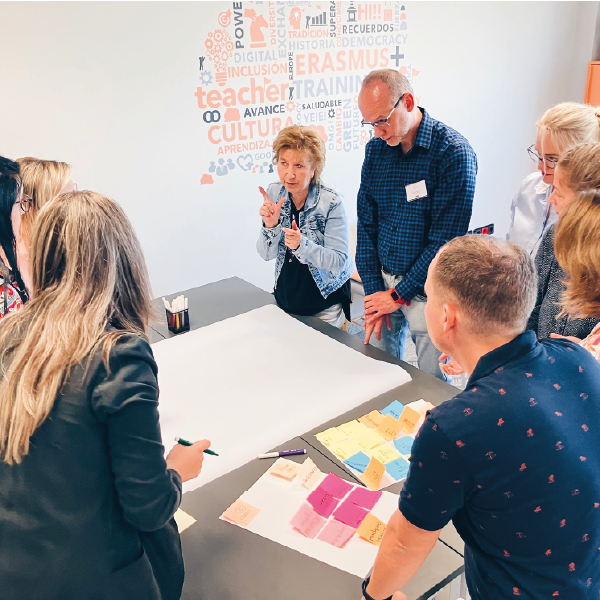Description
The course focuses on Holistic Education, a movement that aims to engage all aspects of a learner, including mind, body, and spirit. This philosophy, known as holistic learning theory, posits that individuals find identity, meaning, and purpose through connections with their community, the natural world, and humanitarian values like compassion and peace. Holistic education seeks to nurture an intrinsic reverence for life and a love for learning, addressing the emotional, social, ethical, and academic needs of students through integrated learning experiences.
Participants are encouraged to reflect on their actions' impact on local and global communities and to learn from their surroundings. Educators engage students in projects that develop critical-thinking skills for solving real-world problems. The approach emphasizes experiential learning and the importance of relationships within the educational environment, making it an alternative form of education.
The course also explores well-being, defined as health, happiness, and prosperity, including good mental health, high life satisfaction, meaning, purpose, and stress management. Teachers learn about the physiological causes of stress and methods for stress reduction, tailored to their and their students' needs. The course addresses the issue of teacher burnout and its negative effects on students and school communities.
Teacher motivation is crucial for commitment and effectiveness. Motivated teachers are more engaged, perform better, and positively influence their surroundings, whereas unmotivated teachers can harm the school environment. The article concludes that holistic education promotes a love of learning, supports academic and personal development, and fosters a collaborative and supportive learning environment, ultimately enriching the teaching and learning experience.
• demonstrates readiness to teach and be active and takes initiative
• has a sound knowledge of the work in a vocational training centre
• shows sufficient self-confidence to predict which activities will be positively received by the group
• approaches all activities with a good mood and positive attitude, as he/she understands how this can affect the mood and abilities of the students
• has the necessary skills to evaluate different teaching methods
• understands the role of storytelling and narrative building as teaching and learning style
• develops communication, collaboration, presentation, problem solving, negotiation, critical and creative thinking skills
• represents the understanding of teacher generated vs learner generated content
• promotes intercultural awareness
• shares experiences of interactive methodologies for learning and teaching from different organisations in order to help each of us to be more effective in work place
• strengthens the European collaboration among educators
• provides insights into different education systems
• demonstrates methods to use Strong Student-Teacher
• Knows how to use Incorporating Emotional Reflection
Methodology is based on theoretical lessons and presentations of examples of good practice as well as discussions and experience comparisons. Participants will have the opportunity to develop their coaching skills as well as broaden their horizons regarding interactive methodology through workshops, simulations, role play and action learning.
- Positive Psychology
- Total Physical Response
- Task-Based Learning
- Communicative Teaching
- SAVI
- THIAGI
- Peer coaching
- An eclectic approach
Knowledge:
The participants adequate knowledge to apply well-being methods in the classroom
• knows how to implement in his/her school the appropriate methodology learned during the project
• perceives the differences and similarities between the Portuguese educational system and the educational system in his/her home country
• knows and applies different methods to increase students' interest in the topic discussed
• knows how to adapt his/her teaching method to the audience
Skills:
The participant knows how to use their own experience in working with students
• choose and implement the best teaching methods used in Portugal
• teach in an active, varied and interesting way
• identify the topic the students are working on in their lessons
• evaluate the quality of teaching
• distinguish between different teaching methods
• put the knowledge into action
• sharpen critical reasoning skills
• distinguish the nowadays’ working patterns
• enhance own career and improve chances for the professional success
• enhance professional skills through mastering tools for virtual communication and collaboration
• Improve Academic Achievement
• Enhance Mental and Emotional Well-Being
• Reduced Impact of Inequities
NEXT COURSES
Our Pricing
100% funded by the Erasmus+

Services included
- Pre-arrival information.
- Tuition & training materials.
- Coffee break.
- Training Certificate.
- Europass Certificate.
- Admin & organizational costs.
services
- Accommodation (hotels & self-catering apartments).
- Half-day and one-day trips.
- Cultural activities.
- Airport transfer.
- Local transport.
We want to read you
Reach out to us using our contact form and we will get back to you shortly.

